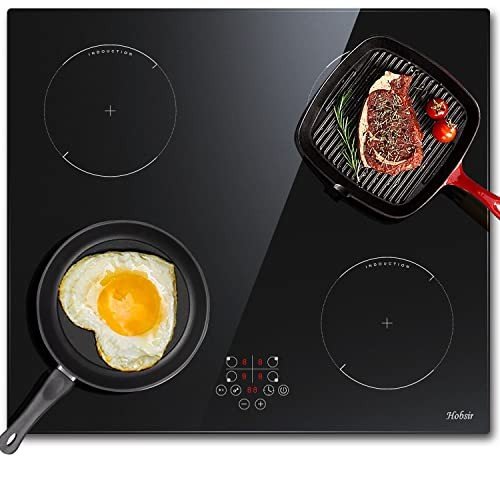Understanding Cooker Hobs and Ovens: A Comprehensive Guide
In contemporary kitchens, cooker hobs and ovens are fundamental appliances that specify cooking practices and preferences. Choosing the best combination of these devices can substantially enhance culinary experience, enhance efficiency, and even elevate home aesthetics. This article will explore numerous elements of cooker hobs and ovens, shedding light on types, features, benefits, and maintenance tips, while also dealing with common questions.
Types of Cooker Hobs
Cooker hobs come in numerous types, each with distinct functions dealing with different cooking designs. Here's a summary of the most typical types:
| Type | Description | Pros | Cons |
|---|---|---|---|
| Gas Hob | Utilizes burner for heating; deals immediate temperature control. | Instantaneous heat and outstanding control. | Requires a gas connection; may be less safe. |
| Electric Hob | Operates using electric coils or smooth surface; heats up gradually. | Even heat distribution; easy to clean. | Takes longer to warm up; less control. |
| Induction Hob | Uses electromagnetic fields to heat pots straight, making it energy effective. | Fast cooking; energy-efficient. | Requires compatible cookware; more expensive. |
| Halogen Hob | Employs halogen bulbs for immediate heat; offers instant temperature change. | Exceptionally quick heating; noticeable heat. | Consumes more power; may not equally heat. |
Selecting the Right Hob
When choosing a hob, consider the following elements:
- Cooking Style: Do you choose the precision of gas, the convenience of electric, or the effectiveness of induction?
- Pots and pans Compatibility: Ensure your pots and pans are suitable with the kind of hob.
- Kitchen Layout: Space and style often determine the kind of hob that matches your kitchen.
Types of Ovens
Likewise, ovens have progressed substantially, offering numerous cooking approaches that can match particular culinary designs. Here are the prevalent types of ovens:
| Type | Description | Pros | Cons |
|---|---|---|---|
| Standard Oven | Standard baking oven that uses electric or gas heat from the top and bottom. | Versatile; great for baking. | Longer preheat and cooking times. |
| Stove | Uses a fan to circulate hot air, allowing even cooking and quicker baking times. Disperses heat uniformly. | Faster cooking; even browning. | Slightly more expensive; may dry food out. |
| Steam Oven | Cooks food using steam, maintaining nutrients and wetness. | Healthier cooking; retains food taste. | Takes longer to prepare; more pricey. |
| Microwave Oven | Uses electromagnetic radiation to heat food rapidly. | Immediate cooking; ideal for reheating. | Minimal cooking techniques; might affect texture. |
Picking the Perfect Oven
When picking an oven, keep these aspects in mind:
- Cooking Habits: Are you a regular baker or more most likely to reheat leftovers?
- Space Requirements: What are the measurements of your kitchen?
- Spending plan: Consider not just the purchase rate but likewise energy effectiveness with time.
The Importance of Cooker Hobs and Ovens in Cooking
The best mix of cooker hob and oven can boost cooking skills, allowing food lovers to experiment and develop a wide variety of meals. Here are a couple of factors why these home appliances are important:
- Efficiency: Modern hobs and ovens featured features that enhance cooking times and energy use.
- Versatility: Different cooking methods (bake, grill, roast, steam, etc) expand the variety of dishes one can prepare.
- Aesthetic Appeal: Stylish styles can elevate the total look of a kitchen, making it both practical and welcoming.
Regularly Asked Questions (FAQs)
1. What upkeep do cooker hobs and ovens require?
- Routine cleansing after use to prevent accumulation.
- Periodic look for gas leakages (for gas hobs).
- Guaranteeing the electrical connections are safe and secure.
2. Can I utilize any cookware on an induction hob?
No, induction hobs require ferrous pots and pans (i.e., magnetic) to work. This suggests stainless-steel and cast iron work, while glass and aluminum pots might not.
3. How do I determine the ideal size oven for my kitchen?
Procedure your readily available area and consider the volume of cooking you normally perform. Requirement ovens range in size, and bigger models usually have additional features.
4. Are convection ovens much better than conventional ovens?
It depends on personal choice. Stove use faster and more even cooking however may not be perfect for all baking recipes, particularly those requiring particular temperature levels.
5. What is Electric Oven Online lifespan of a cooking hob and oven?
With appropriate care, both hobs and ovens can last anywhere from 10 to 20 years, depending on frequency of use and upkeep.
Picking the ideal cooker hob and oven not just streamlines the cooking procedure but can also redefine one's cooking experience. Comprehending the various types, their benefits, and upkeep will empower customers to make educated choices, making sure that their kitchen is equipped to deal with meals from the simplest to the most fancy. Knowledge about the capabilities of these essential appliances enables cooking creativity and effectiveness, ultimately causing a more satisfying cooking journey.

